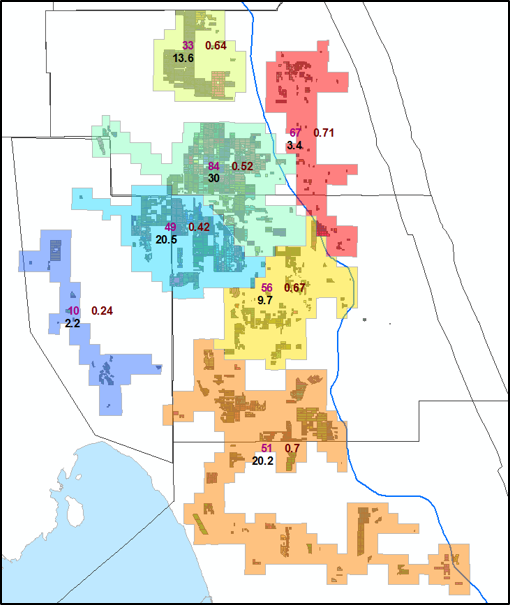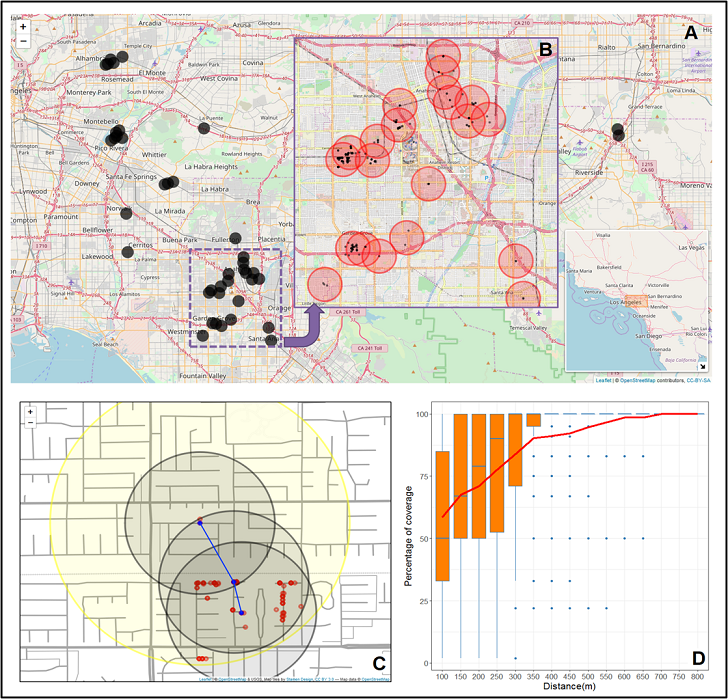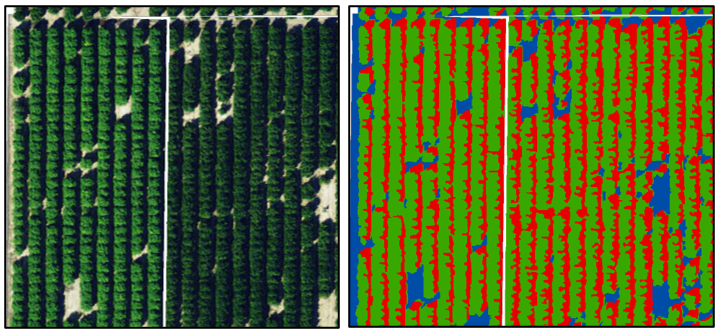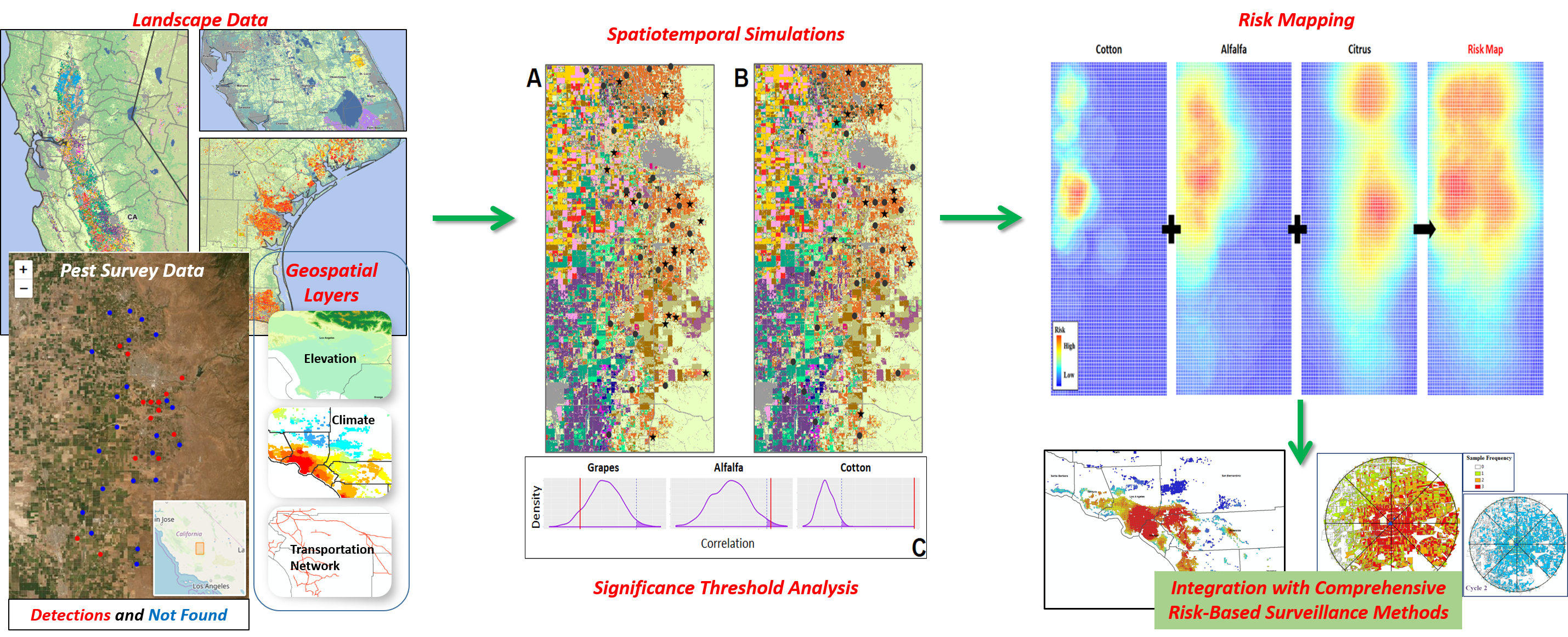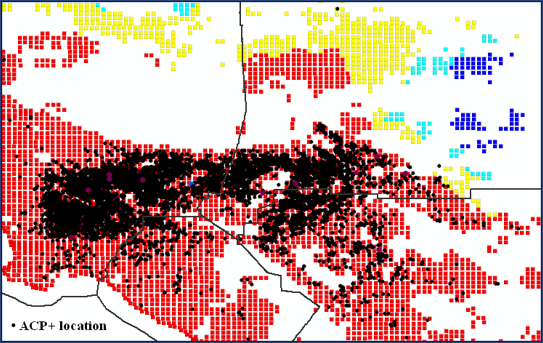ANALYSES
Statistical analysis and computational programming to investigate mitigation measures
Citrus Health Managment Areas (CHMAs) or Pest Managment Areas (PMAs)
Area-wide management has been proven as a viable strategy in suppressing pest and vector populations
and slowing spread of diseases.
Through thousands of simulations, we optimize the spatial construction for area-wide management approaches
with similar levels of risk. In addition, other abiotic factors (e.g. acreage, grower number and spray facility logistics) can be also considered to
refine CHMAs for improved control.
Delimit Response optimization
Following HLB+ tree discoveries, a high intensity/targeted survey to maximize detection
of additional HLB+ trees in new outbreaks to prevent further spread is required.
Identification of a suitable delimiting survey distances can provide a cost-effective balance between survey coverage and manpower allocation/capacities.
Statistical analyses indicated that the previous 800m delimiting survey distance could be significantly reduced
in Southern California while still maintaining >90% detection of infections emanating from the central focus of inoculum.
Such a reduction would return significant manpower and resource allocations to be used elsewhere in the program.
Read more…
Gottwald, T., Luo, W., and McRoberts, N. (2019). Risk-based HLB Surveys for California: optimizing delimiting survey distance. Citrograph 10(2): 30-32.
Aerial imagery analysis
High-resolution satellite imagery can provide key insights into agricultural changes over time.
Isolating the citrus canopy from these images, we are able to gain valuable insight
into things such as the effectiveness of different locales' mitigation strategies, and the cumulative impacts of large-scale
events such as hurricanes.
Landscape risk on pest establishment and progression
The development and spatial fragmentation of agricultural landscapes is driven by changes in policy reform,
socioeconomic factors, climate suitability, urbanization, and grower preferences, among others.
Understanding the effects of crop and landscape diversity on pest and disease dynamics is particularly beneficial for improving
predictive modeling, future agricultural plannning to mitigate risk (i.e. cultural control), and refining current
surveying and control schemes.
